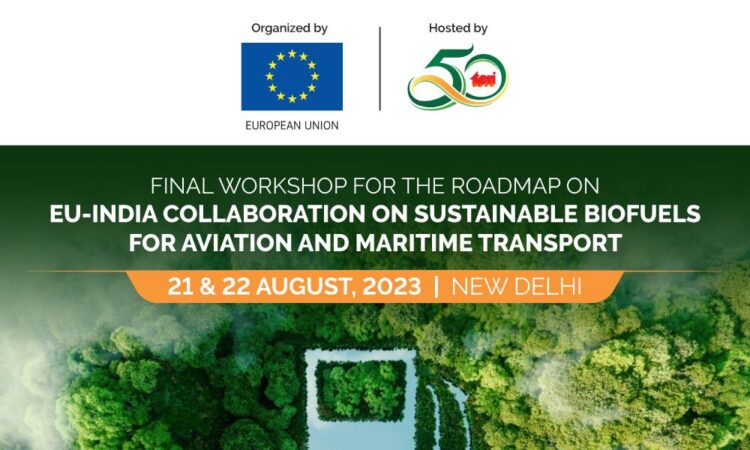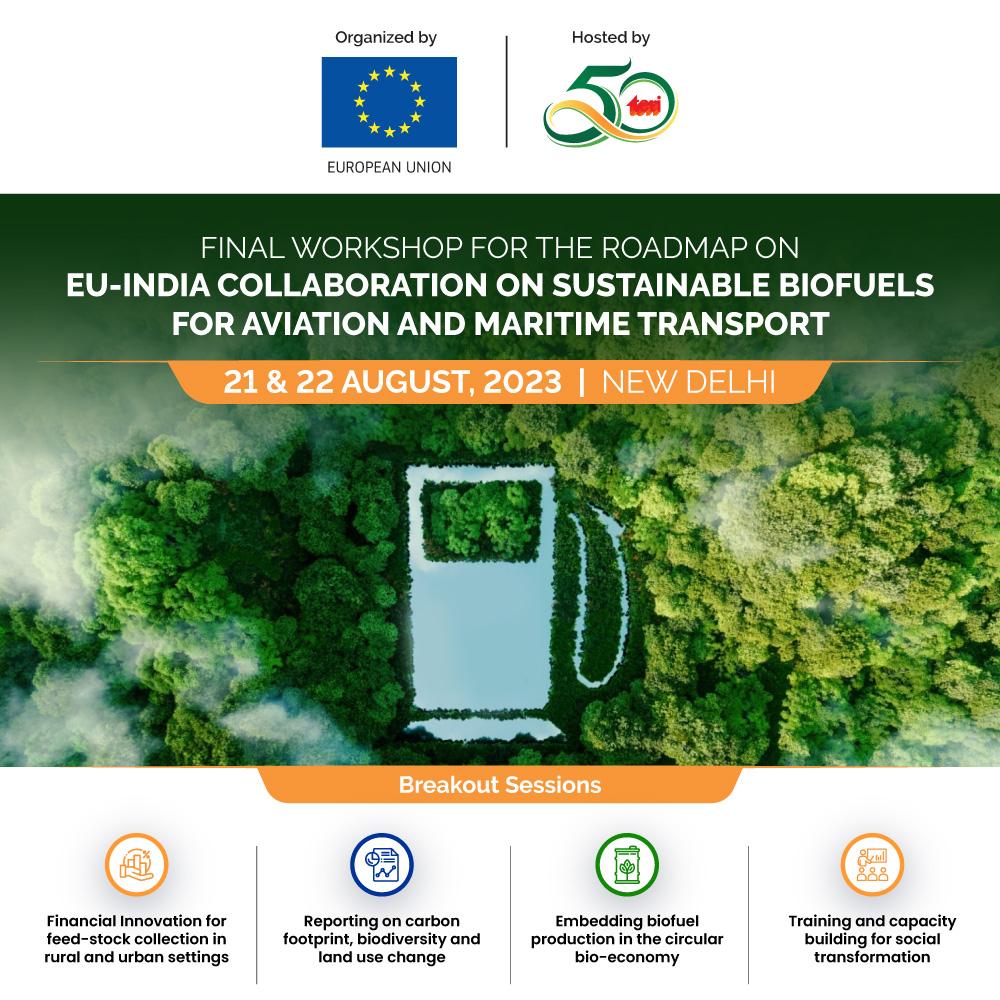EU-India Roadmap for Cooperation On Biofuels from Biomass for Aviation and Maritime Transport


August 21-22, 2023: The Energy and Resources Institute (TERI), New Delhi, India
The decarbonisation of aviation and maritime transport depends on the use of sustainable biofuels. Solutions based on hydrogen and synfuels, will feature in the fuel mix, but biofuels from biomass will play a significant role in the decarbonization of aviation and maritime transport, now and until 2050.
The issue is becoming increasingly urgent. The production of sustainable biofuels needs to rapidly increase so that aviation and maritime transport can respond to the demands being placed on them right now by regulators and by their clients for whom international transport by air and sea accounts for a large part of their overall CO2 emissions.
Sustainable biofuels fall into 3 main categories, namely G2, G3 and G4, depending on the nature of the feedstocks from which they are derived. G3 and G4 technologies are in an early development phase. They are far from being commercially available and continue to be an important area for future research and development. Many mature and market-ready G2 biofuel solutions already exist. These are derived from agricultural and urban waste streams, as well as from non-food crops grown on marginal lands, which do not impact food production systems.
Despite the availability of G2 biofuel technologies, and the readiness of the private sector in both the EU and Europe to invest in G2 biofuel supply chains, the adoption of G2 biofuel solutions is not progressing at a rate that will allow aviation, maritime transport and the businesses that use their services to achieve their increasingly urgent climate and energy goals.
The reasons for this are known. The most urgent issues are systemic in nature and arise from the fact that the energy transition is not a simple substitution of fossil fuels with sustainable alternatives. It requires the development of entire new supply chains, with 10s if not 100s of thousands of actors in rural and urban communities. Transformation on this scale requires innovative forms of finance for rural communities and cities, embedding biofuel production in the circular economy of feed, fertilizer, and green chemical production, and the skilling and capacity development of large numbers of actors in both the public and private sectors.
The roadmap for EU-India cooperation on biofuels from biomass focuses mainly on the work that needs to be done to eliminate barriers that are currently blocking progress on G2 biofuel production, to create an environment in which the private sector investors and technology providers can more fully play their role in the decarbonisation of the global aviation and maritime sectors, enabled by the social transformation of rural and urban communities.






